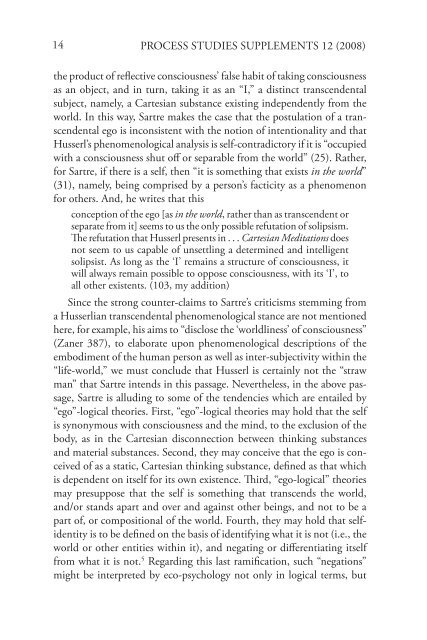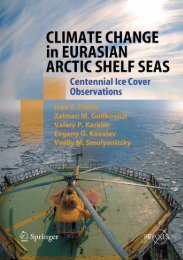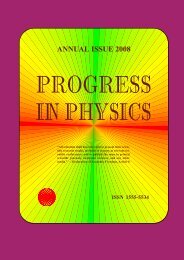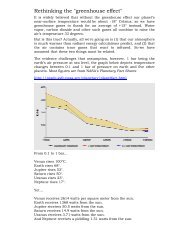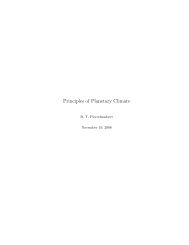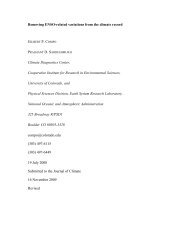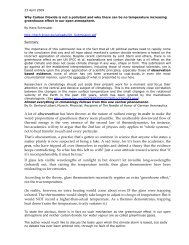Process Studies Supplement Overcoming Anthropocentric ... - Here
Process Studies Supplement Overcoming Anthropocentric ... - Here
Process Studies Supplement Overcoming Anthropocentric ... - Here
Create successful ePaper yourself
Turn your PDF publications into a flip-book with our unique Google optimized e-Paper software.
14<br />
PROCESS STUDIES SUPPLEMENTS 12 (2008)<br />
the product of reflective consciousness’ false habit of taking consciousness<br />
as an object, and in turn, taking it as an “I,” a distinct transcendental<br />
subject, namely, a Cartesian substance existing independently from the<br />
world. In this way, Sartre makes the case that the postulation of a transcendental<br />
ego is inconsistent with the notion of intentionality and that<br />
Husserl’s phenomenological analysis is self-contradictory if it is “occupied<br />
with a consciousness shut off or separable from the world” (25). Rather,<br />
for Sartre, if there is a self, then “it is something that exists in the world”<br />
(31), namely, being comprised by a person’s facticity as a phenomenon<br />
for others. And, he writes that this<br />
conception of the ego [as in the world, rather than as transcendent or<br />
separate from it] seems to us the only possible refutation of solipsism.<br />
The refutation that Husserl presents in . . . Cartesian Meditations does<br />
not seem to us capable of unsettling a determined and intelligent<br />
solipsist. As long as the ‘I’ remains a structure of consciousness, it<br />
will always remain possible to oppose consciousness, with its ‘I’, to<br />
all other existents. (103, my addition)<br />
Since the strong counter-claims to Sartre’s criticisms stemming from<br />
a Husserlian transcendental phenomenological stance are not mentioned<br />
here, for example, his aims to “disclose the ‘worldliness’ of consciousness”<br />
(Zaner 387), to elaborate upon phenomenological descriptions of the<br />
embodiment of the human person as well as inter-subjectivity within the<br />
“life-world,” we must conclude that Husserl is certainly not the “straw<br />
man” that Sartre intends in this passage. Nevertheless, in the above passage,<br />
Sartre is alluding to some of the tendencies which are entailed by<br />
“ego”-logical theories. First, “ego”-logical theories may hold that the self<br />
is synonymous with consciousness and the mind, to the exclusion of the<br />
body, as in the Cartesian disconnection between thinking substances<br />
and material substances. Second, they may conceive that the ego is conceived<br />
of as a static, Cartesian thinking substance, defined as that which<br />
is dependent on itself for its own existence. Third, “ego-logical” theories<br />
may presuppose that the self is something that transcends the world,<br />
and/or stands apart and over and against other beings, and not to be a<br />
part of, or compositional of the world. Fourth, they may hold that selfidentity<br />
is to be defined on the basis of identifying what it is not (i.e., the<br />
world or other entities within it), and negating or differentiating itself<br />
from what it is not. 5 Regarding this last ramification, such “negations”<br />
might be interpreted by eco-psychology not only in logical terms, but


